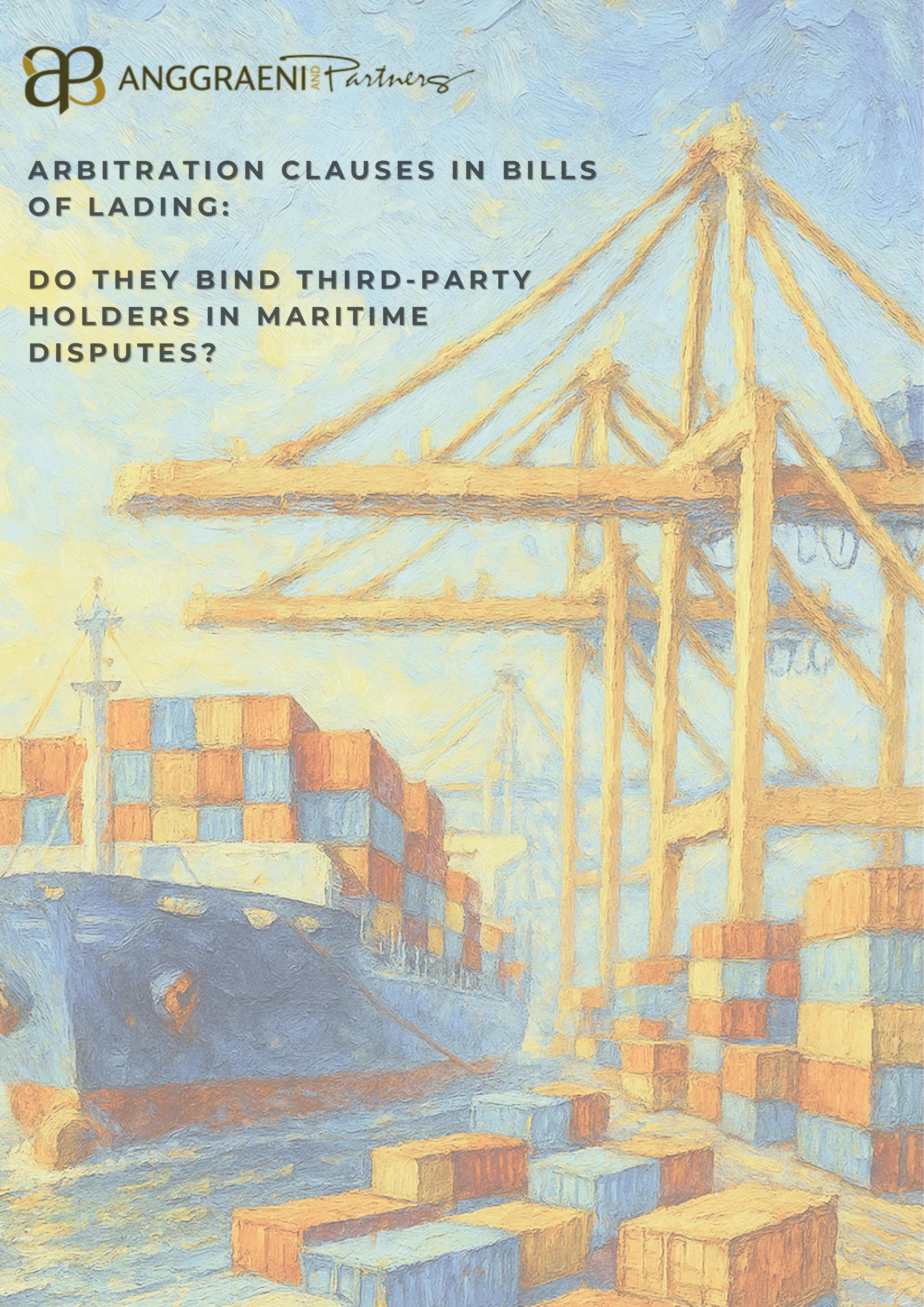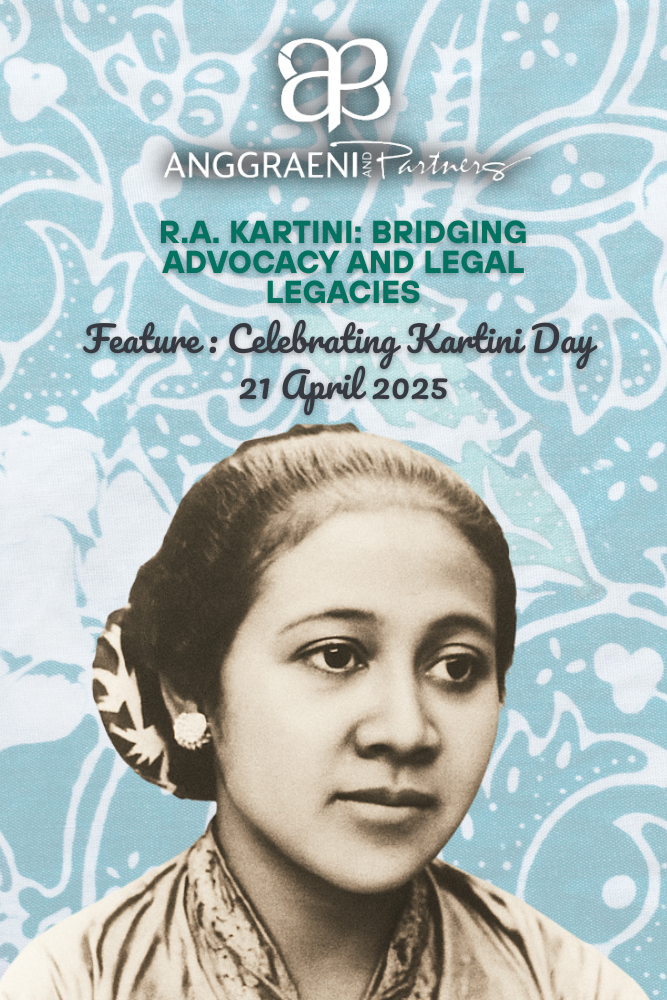Indonesia System Access Suspension and Blacklisting Sanctions: Legal Consequences for Corporate Entities Violating Beneficial Ownership Reporting Mandates
By Setyawati Fitrianggraeni and Agnes Wulandari
The Minister of Law has issued Minister of Law Regulation Number 2 of 2025 on Verification and Supervision of Corporate Beneficial Owners (“Regulation 2/2025”), which expands the scope of corporate obligations in implementing the Know-Your-Beneficial-Owner Principle.
Regulation 2/2025 broadens the definition of Corporation from the previously applicable regulation, namely the Minister of Law and Human Rights Regulation Number 21 of 2019 on Procedures for Supervising the Implementation of the Principle of Knowing Beneficial Owners of Corporations (“Regulation 21/2019”), by adding Sole Proprietorship Companies and Civil Partnerships. Thus, Corporations as defined by Regulation 2/2025 include: (i) Limited Liability Companies; (ii) Foundations; (iii) Associations; (iv) Cooperatives; (v) Limited Partnerships; (vi) General Partnerships; and (vii) Civil Partnerships (“Corporations”).[1]
Administrative Sanctions for Non-Compliance
Regulation 2/2025 stipulates that failure by corporations to fulfill their beneficial owner reporting and information updating obligations may result in administrative sanctions imposed by the Minister. These sanctions apply to corporations that:
- Fail to report Beneficial Owners; and/or
- Submit inaccurate or misleading Beneficial Owner information.
The administrative sanctions include:
- Written warnings;
- Inclusion of the Corporation’s name on the Ministry of Law and Human Rights blacklist; and
- Blocking the Corporation’s access to the General Legal Administration (AHU) Online system, which directly impacts the Corporation’s ability to perform administrative legal services such as reporting amendments to articles of association, updating data, and other corporate legal services.
Administrative sanctions may only be lifted once the Corporation has fulfilled its reporting obligations and submitted complete and accurate Beneficial Owner information, in accordance with verification results by the competent authority.
In addition to establishing Beneficial Owners, Regulation 2/2025 adds corporate obligations beyond those previously regulated under Regulation 21/2019, including:
- Updating Beneficial Owner information periodically once every year;
- Maintaining documentation of beneficial owners; and
- Completing questionnaires related to beneficial owners.
Implementation Stages of the Know-Your-Beneficial-Owner Principle
Regulation 2/2025 governs the implementation of the Know-Your-Beneficial-Owner Principle through several stages:
- Identification and verification;
- Determination of beneficial owners; and
- Submission of beneficial owner information from Corporations to the Minister.
Regulation 2/2025 stipulates that Verification shall be conducted by Corporations, Notaries, the Minister of Law (“Minister”), and other competent authorities in accordance with applicable laws and regulations and their respective authorities.
Verification by Corporations is conducted when the Corporation submits reports on establishment, amendments, and updates.[2]
In addition to being conducted by Corporations, the Determination of Beneficial Owners may be performed by the Minister[3]. The Minister has the authority to determine different beneficial owners based on verification results, analysis, and data processing.[4]
Additional Obligations and Supervision Mechanisms
Regulation 2/2025 not only emphasizes the importance of identifying and verifying Beneficial Owners but also introduces several additional obligations that must be complied with by each Corporation. These obligations include completing questionnaires, maintaining documentation, and periodically reporting and updating information.
To ensure compliance, this regulation also establishes supervision mechanisms by relevant authorities and imposes administrative sanctions on Corporations that fail to meet the requirements. The following provides a more detailed explanation of each aspect:
Questionnaires
The questionnaire is mandated by Permenhum 2/2025 for every corporation in certain situations as part of compliance with applicable regulations. The completion of this questionnaire must be carried out during the establishment, registration, or legalization of a corporation to ensure that all fundamental information related to the entity is properly documented. Additionally, this obligation also applies when there are amendments to the corporation’s articles of association, such as changes in ownership structure, revisions to the company’s objectives, or other modifications affecting the corporation’s legal status. Furthermore, the questionnaire must also be completed in cases of reporting, changes, or updates to beneficial ownership information, to enhance transparency and accountability and ensure that recorded data remains valid and aligned with the latest conditions.
Supervision
Regulation 2/2025 stipulates that supervision is conducted on the submission of information, submission of information changes, and information updates from Corporations. For the implementation of the Know-Your-Beneficial-Owner Principle, supervision is carried out electronically and/or non-electronically.
Sanctions
Non-compliance with the obligation to implement the Know-Your-Beneficial-Owner Principle may result in administrative sanctions imposed by the Minister on the violating Corporation. Administrative sanctions are imposed on Corporations that fail to report Beneficial Owners and Corporations that submit incorrect Beneficial Owner information.
The administrative sanctions include warnings, blacklisting, and blocking access to the Online Legal Administration system for the Corporation. Sanctions may be lifted if the Corporation has fulfilled its Beneficial Owner reporting obligations and/or correctly submitted Beneficial Owner information.
Take Away
Regulation 2/2025 reinforces the importance of ownership transparency in corporations. With administrative sanctions such as blocking AHU Online access and blacklisting, compliance with Beneficial Owner reporting has now become a crucial aspect of corporate governance. [5]Corporations must ensure that all obligations are fulfilled in a timely and accurate manner as part of their commitment to good governance.[6]
Footnotes :
[1] Minister of Law Regulation Number 2 of 2025, Pasal 2.
[2] Permenhum 2/2025, Pasal 6 ayat (3).
[3] Permenhum 2/2025, Pasal 17 ayat (1).
[4] Permenhum 2/2025, Pasal 17 ayat (2).
[5] Permenhum 2/2025, Pasal 22.
[6] Permenhum 2/2025, Pasal 25 ayat (2).
DISCLAIMER :
This disclaimer applies to the publication of articles by Anggraeni and Partners. By accessing or reading any articles published by Anggraeni and Partners, you acknowledge and agree to the terms of this disclaimer:
During the preparation of this work, the author(s) may use AI-assisted technologies for readability. After using this tool/service, the author(s) reviewed and edited the content as needed for the purposes of the publication.
No Legal Advice: The articles published by Anggraeni and Partners are for informational purposes only and do not constitute legal advice. The information provided in the articles is not intended to create an attorney-client relationship between Anggraeni and Partners and the reader. The articles should not be relied upon as a substitute for seeking professional legal advice. For specific legal advice tailored to your individual circumstances, please consult a qualified attorney.
Accuracy and Completeness: Anggraeni and Partners strive to ensure the accuracy and completeness of the information presented in the articles. However, we do not warrant or guarantee the accuracy, currency, or completeness of the information. Laws and legal interpretations may vary, and the information in the articles may not be applicable to your jurisdiction or specific situation. Therefore, Anggraeni and Partners disclaim any liability for any errors or omissions in the articles.
No Endorsement: Any references or mentions of third-party organizations, products, services, or websites in the articles are for informational purposes only and do not constitute an endorsement or recommendation by Anggraeni and Partners. We do not assume responsibility for the accuracy, quality, or reliability of any third-party information or services mentioned in the articles.
No Liability: Anggraeni and Partners, its partners, attorneys, employees, or affiliates shall not be liable for any direct, indirect, incidental, consequential, or special damages arising out of or in connection with the use of the articles or reliance on any information contained therein. This includes but is not limited to, loss of data, loss of profits, or damages resulting from the use or inability to use the articles.
No Attorney-Client Relationship: Reading or accessing the articles does not establish an attorney-client relationship between Anggraeni and Partners and the reader. The information provided in the articles is general in nature and may not be applicable to your specific legal situation. Any communication with Anggraeni and Partners through the articles or any contact form on the website does not create an attorney-client relationship or establish confidentiality.
By accessing or reading the articles, you acknowledge that you have read, understood, and agreed to this disclaimer. If you do not agree with any part of this disclaimer, please refrain from accessing or reading the articles published by Anggraeni and Partners.
For further information, please contact:
P: 6221. 7278 7678, 72795001
H: +62 811 8800 427
Anggraeni and Partners, an Indonesian law practice with a worldwide vision, provides comprehensive legal solutions using forward-thinking strategies. We help clients manage legal risk and resolve disputes on admiralty and maritime law, complicated energy and commercial issues, arbitration and litigation, tortious claims handling, and cyber tech law.
S.F. Anggraeni
Managing Partner
Agnes Wulandari
Senior Associate
agnes.wd@ap-lawsolution.net



